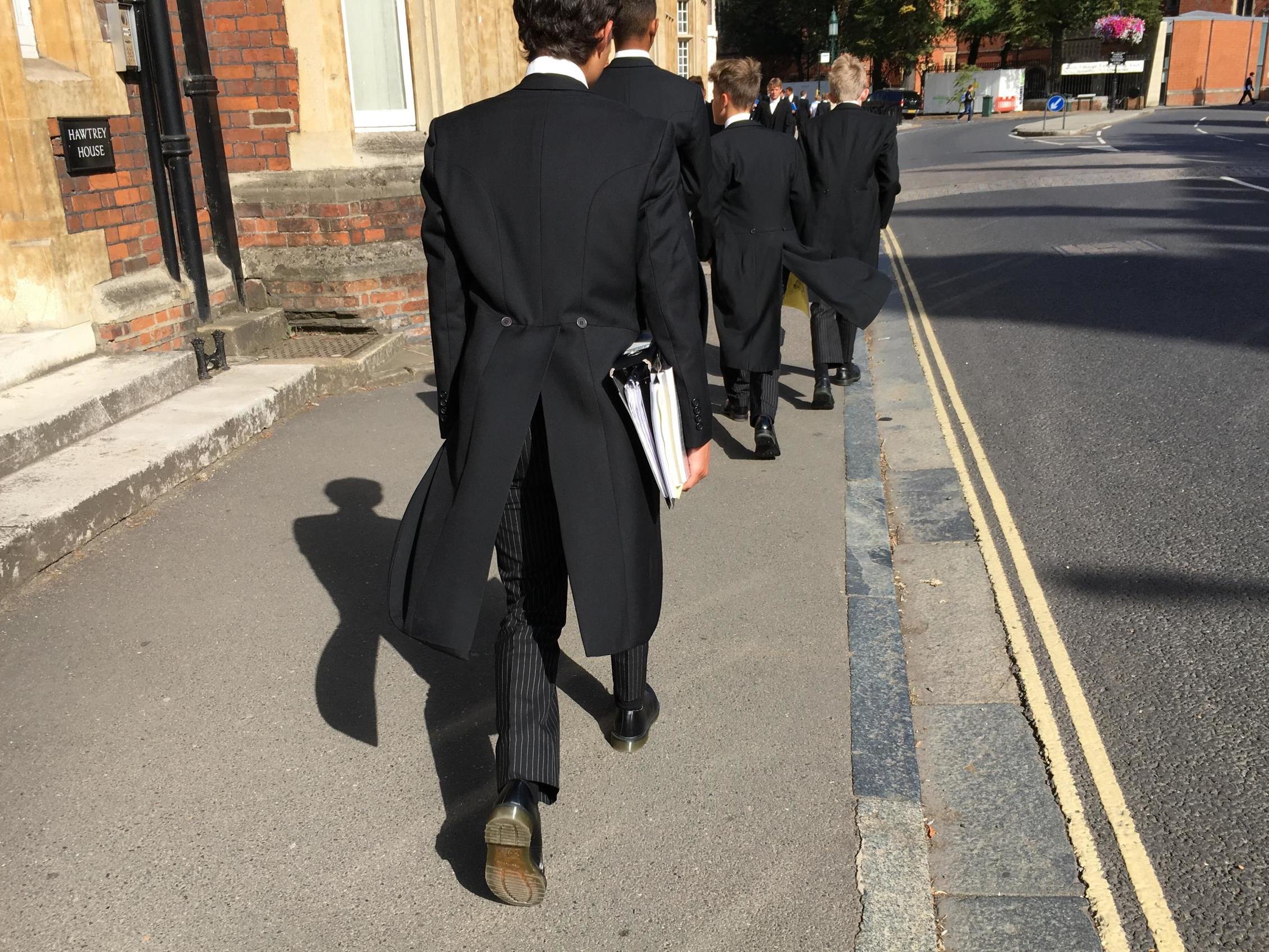Why are Britain’s most powerful positions still dominated by private school alumni?
Analysis: In some professions, those who attended fee-paying schools are more likely to get jobs than five years ago

Britons who went to private school are still preserving their positions at the top of influential professions – despite the fact that just 7 per cent of the general population are privately educated.
And in some professions, you’re now more likely to get your foot in the door if you attended a fee-paying school than five years ago, a Sutton Trust and Social Mobility Commission report finds.
One of Theresa May’s first pledges as prime minister was to end the “burning injustice” that meant state school alumni were less likely to reach top professions than their privately educated peers.
But despite a supposed commitment to improving social mobility from ministers, employers and universities, the privately educated remain over-represented in nearly all the professions examined.
So why has so little changed in five years? The truth is that those who receive a private school education, as well as those who attend the prestigious Oxbridge universities, have a lot working in their favour.
A belief that who you know is more important than what you know still exists in some professions – and the privately educated will often have more links to a strong network of alumni and parents.
Internships can also be a valuable way of getting into a profession and affording unpaid placements is easier among those from well-off backgrounds. The privately educated are likely to benefit from more financial support to make these experiences possible, such as travel and accommodation costs.
A private school education can provide a series of advantages. For example, many independent schools secure high GCSE and A-Level results for their pupils which subsequently opens up more doors to top universities. They are also more likely to focus on university as a route for their pupils.
So increasing the use of contextual admissions at Britain’s elite universities, such as reducing the grade offers to those from more disadvantaged backgrounds, could help narrow the gap slightly.
Independent schools also often have smaller class sizes than neighbouring state schools, as well as better sports and arts facilities. This can give pupils more opportunities to build their soft skills and develop their confidence in class, as well as during a range of extra-curricular activities.
As the class sizes in secondary state schools are set to rise, and the demand on resources increase, the dominance of privately educated people among top professions could get greater still.
Ultimately, it will take more than warm-hearted words from the new prime minister to end the deep-rooted inequalities in society – especially in the British education system.
Join our commenting forum
Join thought-provoking conversations, follow other Independent readers and see their replies
Comments
Bookmark popover
Removed from bookmarks